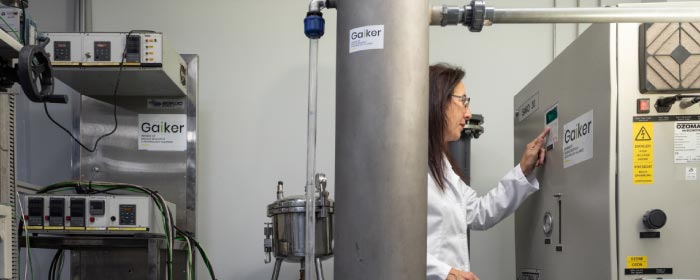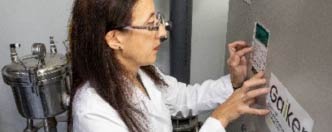Home » Biotechnology » Environment
Global concerns regarding climate change, pollution and environmental degradation call for an in-depth understanding of the impact of such stress factors on environmental health.
Our team develops innovative solutions for water treatment and bioremediation of soils. We develop the optimal customised solution for water treatment from the perspective of the circular economy, contributing to the recovery of substances of interest, as well as to the minimisation and reuse of resources. We also study microbial communities in water treatment plants and identify antimicrobial resistance (AMR). Within the field of bioremediation, we analyse the biological possibility of treating groundwater and contaminated soils and we design and supervise remediation plans for different applications.
We are also experts in ecotoxicology, where we use standardised (OECD, ISO, USEPA) and advanced tests for the evaluation of environmental stress factors. We use alternative species and new approach methodologies (NAM) based on 3R testing methods.
We are members of SETAC (Society of Environmental Toxicology and Chemistry), EU-NETVAL (European Union Network of Laboratories for the Validation of Alternative Methods), REMA (Spanish Network for the Development of Alternative Methods to Animal Experimentation), SENTIATECH (Spanish Technological Platform for Advanced Technologies for Pollutant Detection, Safety Prevention and Environmental Monitoring), and ACLIMA Basque Environment Cluster.

Development of twelve new bio-based technologies to address the four most common soil and groundwater contaminants in Europe: heavy metals, mineral oil, polycyclic aromatic hydrocarbons (PAHs) and volatile aromatic hydrocarbons.
 |
The SYMBIOREM project received funding from the EU’s Horizon Europe research and innovation programme under grant agreement No. 101060361. https://cordis.europa.eu/project/id/101060361. |

Development of full-scale nanobiopiles by combining two innovative soil remediation techniques: bioremediation of contaminated soils using compost and application of nano zero-valent iron (nZVI) particles. Application to soil contaminated with hydrocarbons.

Advice on developing and optimising a process to remediate water from the Bailín landfill aquifer, which is contaminated with residues from the manufacture of lindane, using biological techniques. Laboratory scale study, design, construction and operation of an in situ pilot-scale bioreactor.

Determining the performance level of different configurations of a supply water treatment process (Venta Alta Phase II DWTP), to produce quality water, as per RD 140/2003, by drawing water from the Etxebarri stretch of the River Nervión. Monitoring the by-products of degradation and the impact of certain treatment processes and the way they operation on how these by-products are formed.

Development of a new, more environmentally friendly swimming pool disinfection process that minimises the use of reagents and energy, incorporates biofilters for purification by phytoremediation (use of plants) and alternative disinfection systems to chlorine such as ozonisation, membrane filtration and UV light. Development of capacity control/monitoring software.
